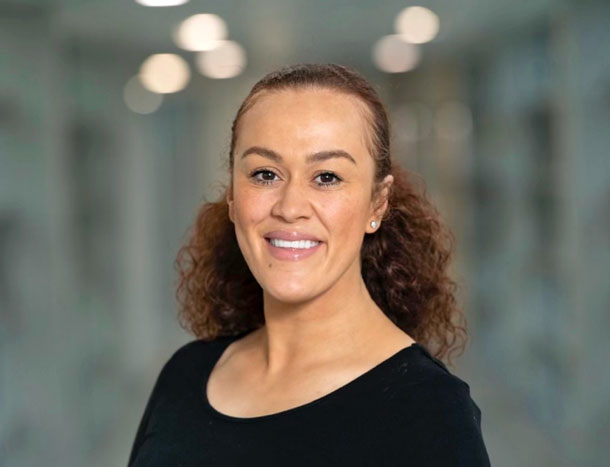Masters
2 years
In person - Full-time
120 ECTS
TBC
About
Learn how to support doctors and surgeons in diagnosing and managing patients as part of the unique MSc in Physician Associate Studies programme from RCSI School of Medicine. You'll train in how to take medical histories, perform examinations, make diagnoses, and analyse test results.
The programme emphasises patient care and the diverse role of a PA and combines theory and practice – an essential balance for clinical learning.
Theory is delivered through blended learning, including lectures, tutorials, and problem-based learning at RCSI’s St Stephen’s Green Campus. Practical clinical experience occurs in hospitals and community settings. We also offer a hybrid-online option of the programme for students who are based outside of Dublin.
This programme spans two full years with a three-week break during the summer, and a short break in April and in late-December/early January.
This course is a Level 9 award on the Irish National Framework of Qualifications.
Please note: Refer to the FAQ document below before sending queries to the Physician Associate email account.
FAQs – Physician Associate Studies PDF | 165 KB
Gain a grounding in the foundations of clinical medicine and pharmacology
Be mentored by qualified PA clinicians in clinical practice
Apply theory to practice with access to world-class simulation facilities
Suitable for
This programme is suitable for anyone with a Level 8 health science or science-related degree, with an interest in a career as a PA and playing a central role in patient care. Applicants do not need to have worked in the healthcare to enrol on this programme. Please see entry requirements for more information.
What you will learn
Explore clinical medicine foundations with anatomy, pathology, and microbiology via a systems approach
Apply theory to practice, emphasising clinical skills and problem-solving in simulated scenarios
Gain detailed pharmacology knowledge for assessing and managing acute and long-term health conditions
Develop self-awareness, leadership, and understand human factors in patient safety
Focus on quality improvement projects impacting patient outcomes for your dissertation
Complete 50 weeks of clinical rotations in various medical and surgical specialties
Introducing physician associates
While all physician associate (PA) students hold a degree in health science or a science-related area, they come from a diverse range of backgrounds. Some have previously worked in healthcare, others are from academia, and all find life as a PA student equal parts demanding and fulfilling.
What our students say
If you’re interested in a career as a PA and playing a central role in patient care, read, listen and watch some of our current students' and graduates' stories below and find out first-hand about day-to-day life as a PA.
Hear from students embarking on their journey to become physician associates as they share their stories and experiences so far.
Hear from alumni as they reflect on their experience at RCSI.
Register your interest
For more information about this course, please contact pastudies@rcsi.ie.
Course information
Please note: We are in the third year of a remote/hybrid model for the programme, offering an equivalent educational experience to the Dublin-based course. This allows selected students to stay in their home communities, reducing relocation costs and partnering with local communities to grow their health workforce.
Students must attend Dublin-based activities such as induction and skills training sessions, not exceeding two days per month. The hybrid programme requires successful admissions and local placements in hospitals and GP settings.
| Module name | Description |
| Foundations of Clinical Medicine |
This module explores the foundations of clinical medicine using a systems approach and includes anatomy dissection and prosection. You will need to draw on your previous science/health sciences qualification to relate to the underlying pathology and microbiology of diseases. |
| Clinical Medicine and Practice |
The focus of this module is the application of theory to practice. Emphasis is placed on ensuring your competency in clinical skills and in using a problem-solving, decision-making approach in case-based learning. You will participate in small group clinically-based simulated scenarios in RCSI’s state-of-the-art simulation centre. |
| Pharmacology and Therapeutics | PAs need to have detailed knowledge of pharmacology and the related clinical sciences to work as part of a multidisciplinary team. This knowledge applied in the clinical domain will enhance your ability to assess and manage patients/clients presenting with acute health problems and/or complex long-term conditions.
|
| Personal and Professional Development | The aim of this module is to develop your self-awareness and leadership skills, to equip you to work as part of a multidisciplinary team. It will include an understanding of human factors in patient safety such as clinical judgement, the development of clinical expertise and underlying causes of medical error.
|
| Evidence-based Practice in Healthcare (dissertation) | Evidence-based Practice in Healthcare (dissertation): PAs are involved in evidence-based practice on a day-to-day basis, whether it is part of a team implementing a change, or as a professional leading an initiative. Your dissertation will focus on a quality improvement project plan which will have an impact on patient outcomes.
|
| Clinical Practice | You will complete up to 50 weeks of clinical practice during the programme (across Year 1 and 2) with a minimum number of weeks in areas including general medicine, community medicine, general surgery, specialty medicine and an elective rotation of your choice.
|
Admissions
You must hold a Level 8 health science or science-related degree with a minimum classification 2.1 award or equivalent qualification.
UK citizens are required to make contact via email at pastudies@rcsi.ie in advance on submitting an application to discuss your current status. All applicants must have a valid Irish, UK, or EU passport.
Please note: We are currently training and qualifying physician associates to work and remain in the Irish healthcare system.
All RCSI students are classified as healthcare workers and vaccination against COVID-19 is strongly recommended.
Failure to maintain your EU passport during the programme would render you ineligible to remain on the programme.
As part of the selection process you are required to submit the following supporting documentation:
- Copy of your passport, showing personal details.
- Personal statement of no more than 1,000 words outlining why you are interested in pursuing a career as a physician associate and why you feel your application has merit.
- One letter from a professor or employer is required. All letters must be on the institution’s letterhead paper, and sent directly by the referee to pastudies@rcsi.ie. Letters of recommendation submitted by candidates will not be accepted.
- Certified, or stamped copy of academic transcripts (or interim transcripts).
- CV outlining your education qualifications and work experience.
- Copy of an academic IELTS examination or equivalent with an overall score of 7.0 and no individual band below 6.5 (for candidates whose first language is not English). This certificate must be issued with at least two years validity.
- You may also send any additional information that you feel is relevant to your application.
- In addition, you must be available for interview. For more information, please contact pastudies@rcsi.ie.
Garda vetting
Garda vetting is required as a standard part of the registration process. If you accept an offer to register on the course you will begin the Garda vetting process prior to registration. All students are provisionally registered until they have received clearance from the Garda authorities. If you fail to secure Garda clearance or present with serious criminal convictions you may be discontinued.
Please contact pastudies@rcsi.ie if you have any queries.
Year 1: €12,380
Year 2: €12,000
Please note: There is a non-refundable online application fee of €100. Once you have been offered and accepted a place on the programme, a €1,000 deposit will be requested to secure your place. Fees include an annual NUI fee.
For non-scholarship students:
- The first instalment (50%) of your fees will be requested prior to commencement of the programme in December.
- The second instalment (50%) will be required in May.
Fees are paid by electronic transfer. Fees are subject to annual review.
Additional costs
While every effort has been made to keep costs at a minimum, there will be some additional costs incurred during the first year, namely:
- White coat for anatomy lab: €30.
- White coat for clinical rotations: €30.
- Good quality stethoscope: €40-60.
Supplemental exam fees: Should you be required to sit a supplemental exam/s you will incur an additional administration cost. The cost will be determined by the number of supplemental exams you are required to take.
Scholarship opportunities
Some private institutions have provided scholarships for students in the past. This is reviewed each year and you will be notified if these become available.
To be eligible, you must first apply to, and be accepted by, RCSI to the programme. You are then eligible to apply directly to the sponsor for all or any of the scholarship options available.
Terms and conditions, as defined by the sponsor, apply to each of the scholarships. On graduation, successful applicants must be willing to work as a PA in any of the clinical locations operated by the scholarship sponsors.
How to apply
Applications for our January 2025 intake have now closed.
The programme's next application cycle will be announced soon. We are currently undergoing a curriculum review and possible change in the start date. Please check back in the spring of 2026 for an update on the next application cycle.
Please contact pastudies@rcsi.ie if you have any queries.



